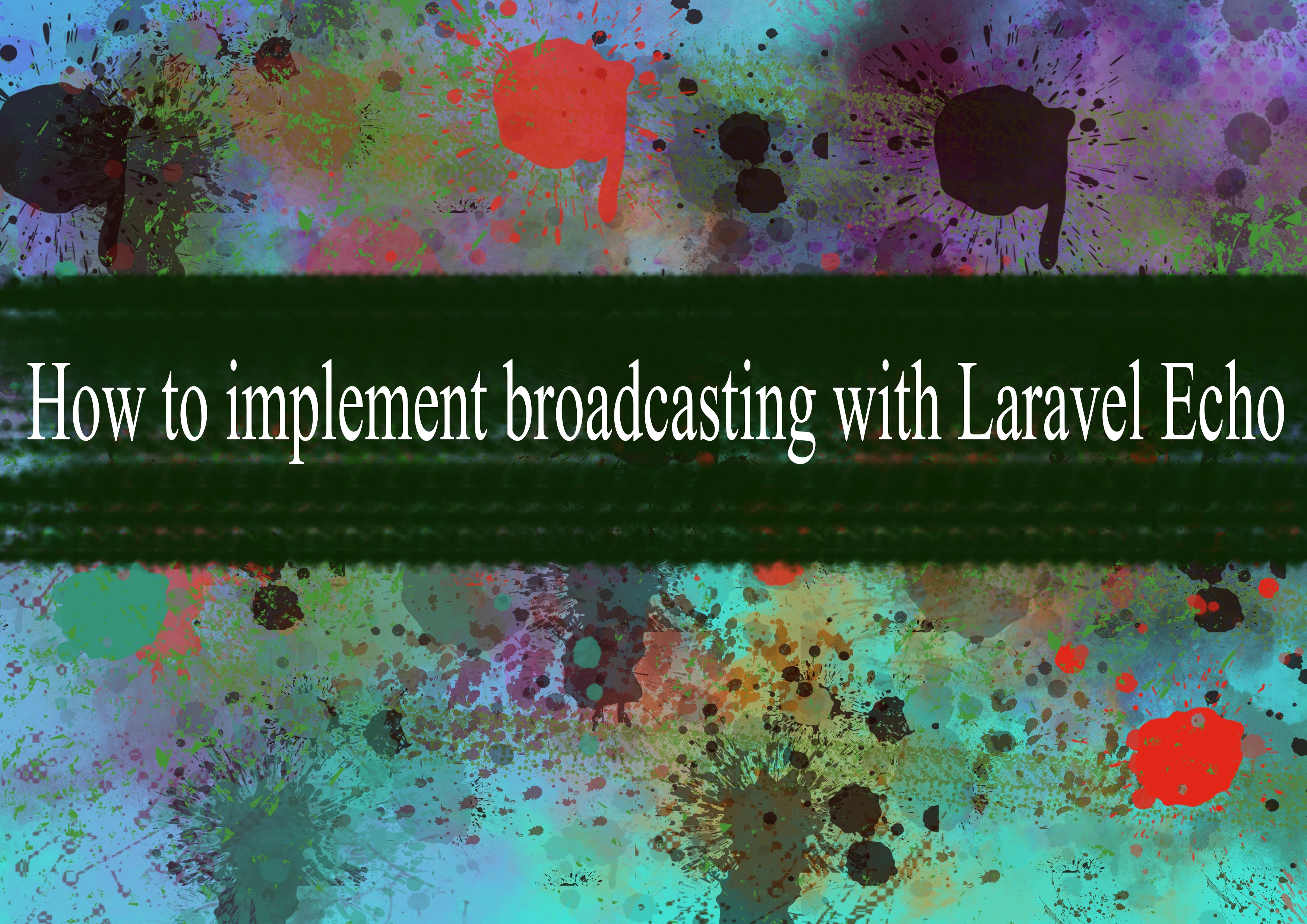How to implement broadcasting with Laravel Echo

Broadcasting in Laravel allows you to broadcast events to your WebSocket server (like Pusher) and then push those events to connected clients in real-time. Laravel Echo is a JavaScript library that makes it easy to subscribe to channels and listen for broadcasted events. Broadcasting is often used for features like real-time notifications, live updates, and chat applications.
Here's a basic step-by-step guide on how to implement broadcasting with Laravel Echo:
Set Up Broadcasting Driver:
Laravel supports multiple broadcasting drivers like Pusher, Redis, and more. You need to configure your
.envfile with the appropriate broadcasting driver settings. For example, for Pusher:envBROADCAST_DRIVER=pusher PUSHER_APP_ID=your-app-id PUSHER_APP_KEY=your-app-key PUSHER_APP_SECRET=your-app-secret PUSHER_APP_CLUSTER=your-app-clusterInstall the necessary packages if you haven't already:
bashcomposer require pusher/pusher-php-server
npm install --save laravel-echo pusher-js
Set Up Broadcasting Event:
Create a broadcasting event using the
make:eventartisan command:bashphp artisan make:event MyEventModify the generated event class to broadcast the event:
php// app/Events/MyEvent.php class MyEvent implements ShouldBroadcast { public $data; public function __construct($data) { $this->data = $data; } public function broadcastOn() { return new Channel('my-channel'); } }
Broadcast the Event:
Trigger the event from your controller, service, or wherever you want to broadcast it:
phpevent(new MyEvent('Broadcast this data'));
Listen to the Event with Laravel Echo:
In your JavaScript, use Laravel Echo to listen for the event:
javascript// resources/js/bootstrap.js or any other JavaScript file import Echo from 'laravel-echo'; window.Echo = new Echo({ broadcaster: 'pusher', key: process.env.MIX_PUSHER_APP_KEY, cluster: process.env.MIX_PUSHER_APP_CLUSTER, encrypted: true, }); window.Echo.channel('my-channel') .listen('MyEvent', (event) => { console.log('Event received:', event); // Handle the event data });Make sure to include the necessary scripts in your HTML layout to load Laravel Echo and Pusher.
-
Popular Post
- How to optimize for Google's About This Result feature for local businesses
- How to implement multi-language support in an Express.js application
- How to handle and optimize for changes in mobile search behavior
- How to handle CORS in a Node.js application
- How to use Vue.js with a UI framework (e.g., Vuetify, Element UI)
- How to configure Laravel Telescope for monitoring and profiling API requests
- How to create a command-line tool using the Commander.js library in Node.js
- How to implement code splitting in a React.js application
- How to use the AWS SDK for Node.js to interact with various AWS services
- How to use the Node.js Stream API for efficient data processing
- How to implement a cookie parser middleware in Node.js
- How to implement WebSockets for real-time communication in React
-
Latest Post
- How to implement a dynamic form with dynamic field styling based on user input in Next.js
- How to create a custom hook for handling user interactions with the browser's device motion in Next.js
- How to create a custom hook for handling user interactions with the browser's battery status in Next.js
- How to implement a dynamic form with dynamic field visibility based on user input in Next.js
- How to implement a dynamic form with real-time collaboration features in Next.js
- How to create a custom hook for handling user interactions with the browser's media devices in Next.js
- How to use the useSWRInfinite hook for paginating data with a custom loading indicator in Next.js
- How to create a custom hook for handling user interactions with the browser's network status in Next.js
- How to create a custom hook for handling user interactions with the browser's location in Next.js
- How to implement a dynamic form with multi-language support in Next.js
- How to create a custom hook for handling user interactions with the browser's ambient light sensor in Next.js
- How to use the useHover hook for creating interactive image zoom effects in Next.js